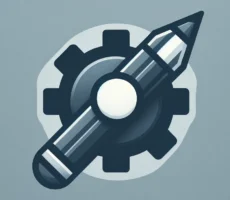Turning the big 3-0 can spark a revelation: Am I really going to do this job for the rest of my life? You’re not alone in feeling that career restlessness; it’s like wanting to change lanes on the highway but worrying you might have missed your exit.
In this blog post, I’m going to show you that switching careers in your 30s isn’t just possible – it’s an adventure waiting to happen.
Quick Takeaways:
- Leverage your existing skills and experiences as assets for your new career — they’re invaluable even in new industries.
- Embrace strategic learning and networking to bridge any skill gaps and connect with industry insiders.
- Plan financially for the transition and tailor your job hunt to align with your new career goals.
Why Do People Change Careers in Their 30s?
The big 3-0 is a time when many start to re-evaluate where they’re headed, personally and professionally. It’s far from uncommon to see folks in their 30s take a sharp turn on the career path for several compelling reasons. Seeking greater fulfillment stands out as a prime motivator. After a decade or so in the workforce, many come to realize that job satisfaction is as crucial as the paycheck. It’s not just about climbing the corporate ladder anymore; it’s about finding purpose and joy in what you do every day.
Then there’s the matter of shifting passions. People change, and so do their interests. What titillated someone at 25 might not get them out of bed with the same gusto a decade later. The thirst for new challenges and the desire to learn can lead many to plunge into entirely different industries. Sometimes external factors such as industry downturns or technological advancements render certain jobs less secure or fulfilling, nudging workers toward more promising fields.
The 30s also bring about a yearning for a better work-life balance. Juggling family responsibilities with work demands can spark the pursuit of more flexible careers or those that align more closely with personal values and lifestyle choices. This decade is ripe for reflection and action, fueled by a drive for personal growth and fulfillment.
Is It Really Possible to Start Fresh in a New Industry?
Ever heard the old chestnut, “You can’t teach an old dog new tricks”? Well, it’s time to toss it out along with other myths about age and employability. Stepping into a new industry in your 30s isn’t just possible; it’s becoming the norm. The landscape of work is shifting, with career changes now seen as signs of adaptability and a willingness to grow.
Plenty of success stories and data back up this increasing trend of mid-career transitions. For example, a study by the American Institute for Economic Research found that 82% of mid-career professionals who attempted to pivot to a new career after age 45 were successful. Those successes aren’t limited to the young whippersnappers out there – they span across various age brackets, proving it’s never too late to chase a new dream.
What Are the Challenges and How Can I Overcome Them?
Embarking on a career change at any age comes with its unique set of challenges, more so in your 30s when stakes can feel higher. One of the most significant hurdles might be a potential skill gap. It’s daunting, yes, but entirely bridgeable. Plugging into resources like online courses or night classes can bulk up your resume with relevant qualifications. Even better, these credentials signal to employers your commitment to the new field.
Next up is financial consideration. You’ve likely settled into a lifestyle that fits your current income, and starting anew might mean tightening the belt for a while. It’s wise to pad your savings to cushion any financial impact during this transition. Work on a budget that accounts for a potential drop in income, at least temporarily.
And yeah, you might need to start at a lower level than you’re accustomed to. It’s humbling, but it’s often a short-term trade-off for long-term gains. To gain experience, consider volunteer work, internships, or even side projects related to your new field. It’s all about gaining those invaluable, real-world skills that’ll give you the edge.
Then comes networking – the ace up your sleeve. Forge connections in your chosen industry. Platforms like LinkedIn or industry-specific forums are goldmines for meeting potential mentors or peers who’ve been where you are. Real-life experts can offer you a map of the terrain ahead, tailored by their own journeys.
One unique piece of advice most neglect is to leverage your age as an asset. Your 30s come with a maturity, a wealth of experience, and a level of self-awareness that can be invaluable in a new career. Instead of viewing your age as a setback, present it as a strength. You are not just changing careers; you offer a blend of fresh enthusiasm equipped with years of transferable skills.
Embrace the adventure, lean into learning, and remember – your career path isn’t a straight line; it’s a rich tapestry of experiences that you’re about to make even more colorful.
How Do I Know What Career Is Right for Me Now?
If you’re toying with the idea of a career swap in your 30s, you’re probably wondering, “What’s next for me?” The good news is, there are a plethora of resources at your fingertips that can help illuminate your path. Start with self-assessment tools or personality tests — like the Myers-Briggs Type Indicator or the Holland Code (RIASEC) Test — which can pinpoint your preferred working styles and interests.
But a word of caution: don’t take these tests as gospel. They’re more like signposts along your journey, not your final destination. You’ll want to reflect on your past job experiences. What tasks made you lose track of time because you were so engrossed? Which ones made you clock-watch? By pinpointing these moments, you can align your future career with your passions and values.
Here’s a pro tip: think about the legacy you want to leave behind. It gets down to the very essence of what you value. Whether it’s making a tangible difference in your community or innovating in a tech space — your legacy can be a compass for your career switch.
What Practical Steps Should I Take to Transition Successfully?
Alright, now let’s roll up our sleeves and get practical. Changing careers isn’t just about the dream; it’s about making strategic moves.
Update Your Resume: Give it a facelift to reflect the industry you’re targeting. Leverage your transferable skills by highlighting how they can benefit your new path. For example, leadership, project management, or communication skills are golden in almost any field.
Learn the Lingo: Every industry has its jargon. Grab trade publications, listen to relevant podcasts, and immerse yourself in the language of your new field.
Upgrade Your Skills: Consider taking courses or certifications that add weight to your application. Platforms like Coursera or edX offer courses from top-notch universities without breaking the bank.
Network Like a Pro: Roughly 85% of jobs are filled through networking, according to a LinkedIn survey. Hit up industry events, join professional groups on LinkedIn, and don’t be shy about reaching out for informational interviews.
Tailor Your Job Hunt: Instead of applying to every job under the sun, tailor your search to roles that genuinely match your skills and interests. Quality over quantity wins this race.
Mind the Gap: Here’s something unique not everyone may mention. If you’re eyeing a role but lack a particular trendy skill or experience, consider freelancing or volunteering to fill that gap. It’s a win-win; you gain experience and also have a fresh addition to your resume.
Pro Tip: Keep a pulse on the industry you want to transition into. Follow influencers, sign up for newsletters, and stay informed about the latest trends and changes. This will not only prepare you for interviews but also arm you with insights that can influence your contributions from day one.
Remember, the key to a successful career change in your 30s is to marry your practical experience with a fresh perspective and unbridled enthusiasm. You’ve got the know-how from your years of experience, and now you’re adding a new layer of expertise. It’s this combination that will make you a standout candidate.
Challenge yourself, stay persistent, and keep learning. The career you dream of is more than just possible — it’s within reach.







